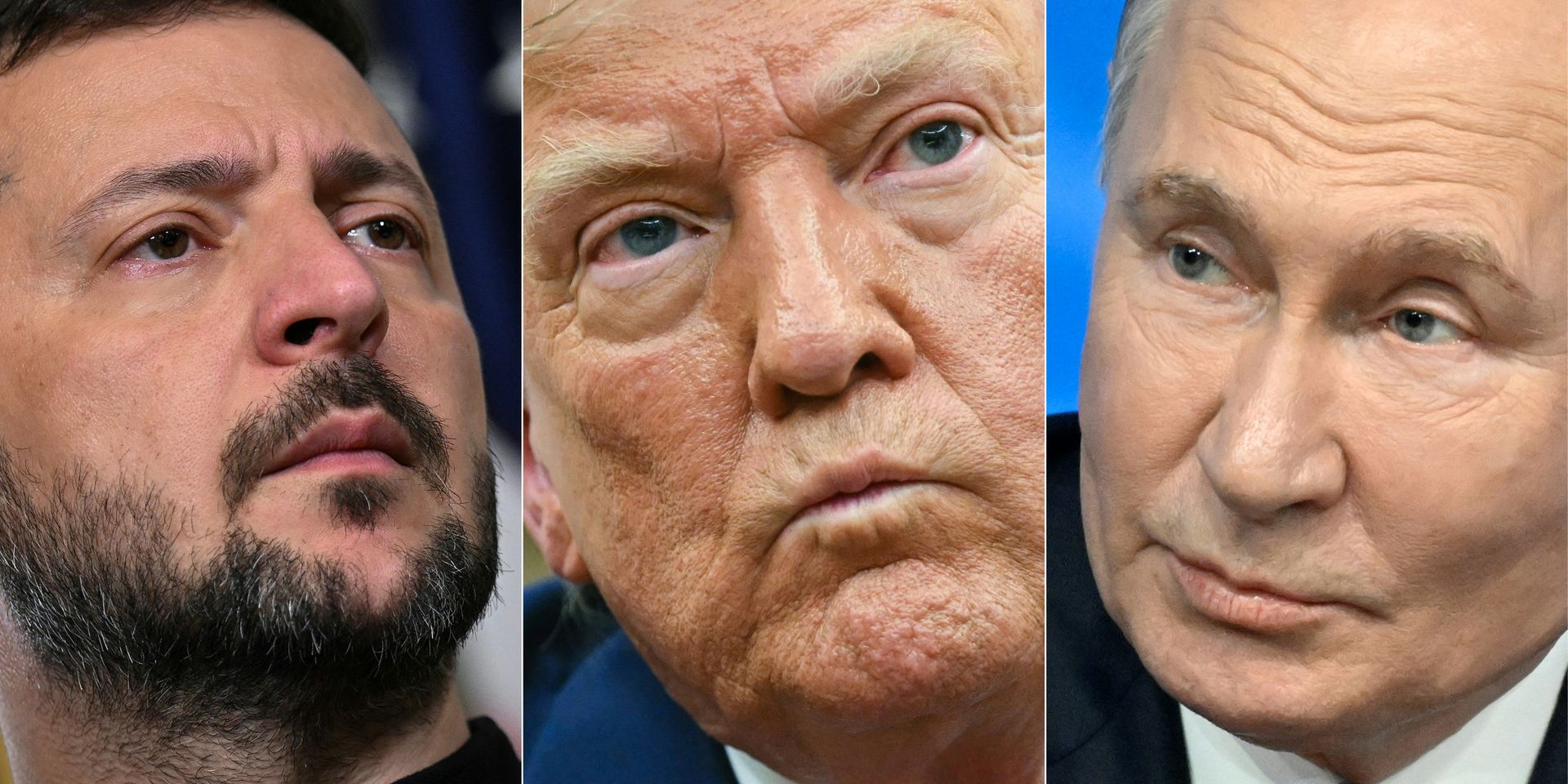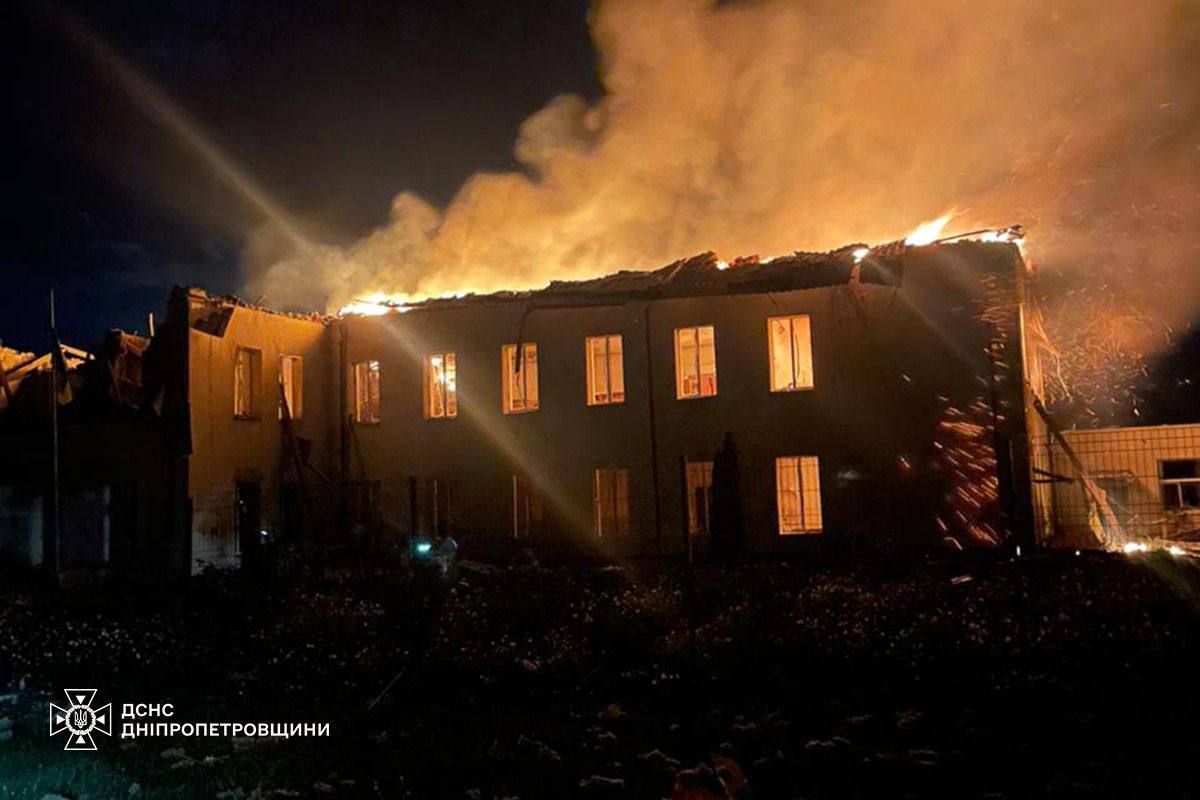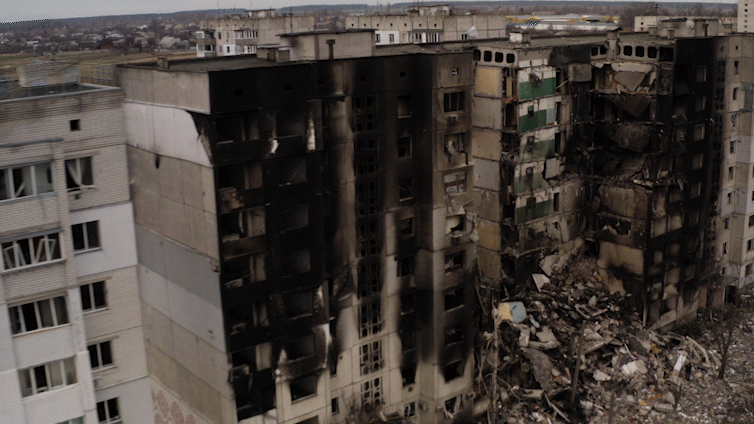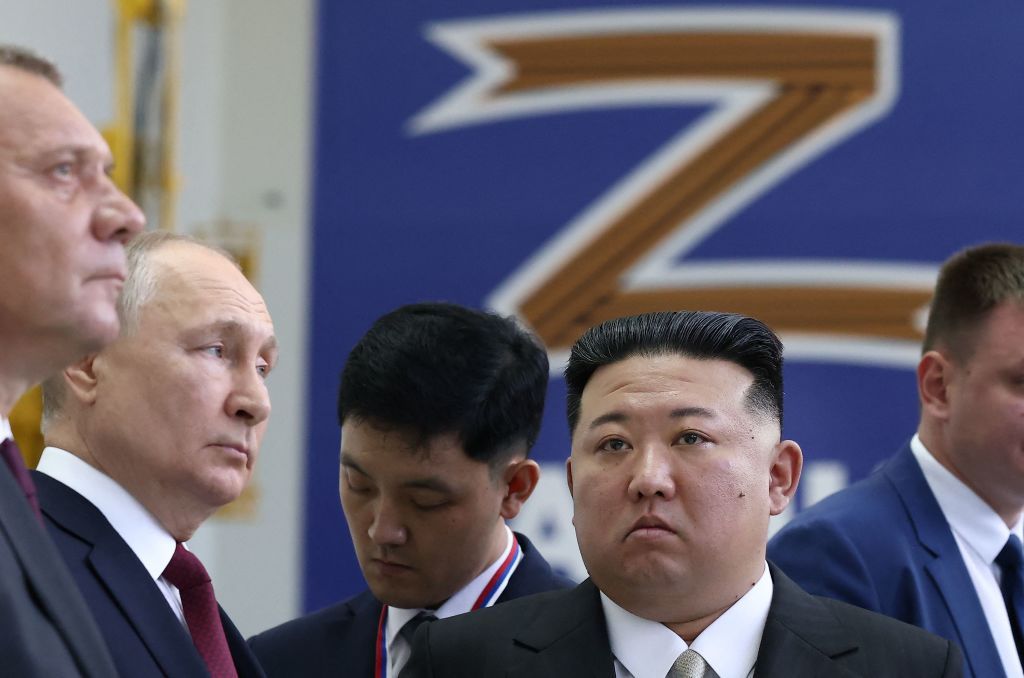Ukraine war latest: German-funded long-range weapons to arrive in Ukraine by late July; NATO chief to visit Washington on July 14 as Trump prepares 'major statement' on Russia

Key developments on July 12-13:
- German-funded long-range weapons to arrive in Ukraine by late July, general says
- NATO chief to visit Washington on July 14 as Trump prepares 'major statement' on Russia
- Trump considering sending new funds to Ukraine for first time since taking office, CBS News reports
- Over $4 billion in new funds pledged for Ukraine's reconstruction after Recovery Conference, ministry says
- Kim Jong Un pledges to 'unconditionally' support Russia's war against Ukraine
Ukraine will begin receiving hundreds of domestically produced long-range weapon systems by the end of July under a German-financed agreement, German Major General Christian Freuding told the German ZDF news channel.
The weapons will be supplied in a "high triple-digit quantity," he said, referring to a deal between Ukraine's Defense Ministry and local arms producers that Berlin agreed to fund in late May.
"We need weapons systems that can reach far into the depth of Russian territory — to hit depots, command centers, airfields and aircraft," Freuding said on July 11, adding that Germany is "ready to provide such systems."
The general, who heads the Ukraine task force at the German Defense Ministry, did not specify what kind of long-range systems Germany is financing.
Ukraine is developing a number of long-range capabilities, including ballistic missiles, long-range drones, and drone-missile hybrids to strike deep inside the Russian rear amid dwindling stockpiles of Western long-range weapons.
The Ukrainian military has previously received the Storm Shadow/SCALP missiles from the U.K. and France and ATACMS from the U.S., but Germany has so far refused to supply its own Taurus cruise missiles.
Freuding did not confirm whether Berlin plans to greenlight the supply of Taurus missiles when asked by the reporter.
The general, who spoke from Kyiv, acknowledged that the battlefield situation remains "militarily tense," with Russian forces holding the initiative for "several weeks, if not months," and increased pressure on major Ukrainian cities from the air.
The general also said Germany is in ongoing negotiations with the United States over the potential purchase and transfer of one or two Patriot air defense systems to Ukraine, describing talks as "ongoing for weeks at all levels."
Ukraine has been calling on its partners to enhance its air defence capabilities, as Russia has escalated its large-scale aerial attacks on Ukrainian cities, including those far from the front line.
German Chancellor Friedrich Merz said on May 28 that Berlin would help finance the production and procurement of Ukrainian-made long-range weapons systems.
Merz made the comments during a joint press conference with President Volodymyr Zelensky in Berlin, where he also announced support for continuing Starlink satellite operations in Ukraine.
"There will be no restrictions on long-range weapons," Merz said at the time. "Ukraine will be able to fully defend itself and also strike military targets outside the territory of Ukraine."
Merz described the deal as "the beginning of a new form of military-industrial cooperation between our countries."

NATO chief to visit Washington on July 14 as Trump prepares 'major statement' on Russia
NATO Secretary General Mark Rutte will visit Washington on July 14-15, the military alliance's press service announced on July 13.
The visit comes as U.S. President Donald Trump previously said he intends to make a "major" announcement on Russia on July 14, potentially signifying a major policy shift on the war in Ukraine as relations with the Kremlin sour.
"I think I'll have a major statement to make on Russia on Monday," Trump told NBC News on July 10, without elaborating on the nature of the statement. "I'm disappointed in Russia, but we'll see what happens over the next couple of weeks," Trump added.
Although NATO's press service did not state the purpose of Rutte's visit, Trump told NBC News that the U.S. had struck a new arrangement with NATO, to transfer American weapons to Ukraine.
"We're sending weapons to NATO, and NATO is paying for those weapons, 100%. So what we’re doing is the weapons that are going out are going to NATO, and then NATO is going to be giving those weapons (to Ukraine), and NATO is paying for those weapons," Trump said.
Trump said the deal was finalized during the NATO summit last month, where Trump signalled support for sending more Patriot missiles to Ukraine.
The potential for additional aid as well as Trump's newfound criticism of Russian President Vladimir Putin comes as Moscow has refused to agree to a ceasefire, instead increasing its frequency of mass attacks on Ukrainian cities.
Rutte's visit also comes amid news that Trump is reportedly considering authorizing additional funding for Ukraine for the first time since the start of his term as well as the greenlighting new weapons for Ukraine under the Presidential Drawdown Authority.
Rutte is also scheduled to meet with Secretary of State Marco Rubio, Defense Secretary Pete Hegseth, and members of Congress, the press service said.
Despite little progress on securing a peace deal, Trump has thus far refused to implement additional pressure on Moscow through new sanctions.
Republican leaders in the U.S. Senate and House of Representatives are prepared to move forward on a bill that would impose harsher sanctions on Russia and buyers of Russian fossil fuels, House Speaker Mike Johnson and Senate Majority Leader John Thune said on July 9. However, a senior administration official told Politico that Trump will only support the bill if it preserves the president's ultimate authority over U.S. foreign policy.
Trump considering sending new funds to Ukraine for first time since taking office, CBS News reports
Trump is considering authorizing additional funding for Ukraine for the first time since the start of his term, CBS News reported on July 12, citing multiple diplomatic sources.
Sources told CBS News that the funds for Kyiv may be part of a message the White House hopes to send Russia, which has drastically ramped up mass missile and drone attacks against Ukraine in recent months.
It is not clear where these new funds for Ukraine would come from, but current and former U.S. officials outlined some possible options. Trump has around $3.85 billion from the Presidential Drawdown Authority remaining from Biden's administration, officials said.
Trump also has the power to confiscate about $5 billion in frozen Russian assets and channel those funds to Ukraine, former officials said. Neither Trump nor Biden have previously exercised that authority.
Trump has previously criticized U.S. military aid to Ukraine, lambasting Biden for the billions of dollars sent to Kyiv following Russia's full-scale invasion. His administration has not authorized any additional weapons or funding for Ukraine and has said it plans to reduce the amount of military aid to Ukraine in its upcoming defense budget.
The Pentagon in early July also halted Ukraine-bound shipments of weapons — including vital air defense munitions — citing concerns over dwindling U.S. stockpiles. Washington has reportedly since resumed some deliveries, though questions remain about the flow of weapons and Trump's involvement in the decision.
Over $4 billion in new funds pledged for Ukraine's reconstruction after Recovery Conference, ministry says
Ukrainian officials signed agreements, memorandums, and joint statements on raising funds totalling 3.55 billion euros ($4.15 million) following the Ukraine Recovery Conference (URC) on July 10-11 in Rome, Ukraine's Ministry for Development of Communities and Territories announced July 13.
"We received a clear message from Ukraine's friends and partners: they are ready to invest in our recovery," Oleksii Kuleba, Deputy Prime Minister for the Restoration of Ukraine and Minister for the Development of Communities and Territories, said in a statement.
"This is evidenced by the initiative to create the Recovery Coalition, the European Flagship Fund for Ukraine's reconstruction, as well as the signing of a number of specific agreements, memoranda and joint statements totaling more than 3.5 billion euros," Kuleba added.
The ministry signed five agreements worth over 370 million euros. These include a 100 million euro framework loan agreement with the Council of Europe Development Bank to finance housing certificates for Ukrainians, a 32.5 million euro program with Italy to restore and preserve the cultural Heritage of the Odesa Oblast, and a 134 million euro agreement with the European Investment Bank to reconstruct Ukraine's critical transport infrastructure.
The Ministry also signed a memorandum with the Italian Foreign Ministry on insurance coverage of up to 100% for banks on export loans of up to 1.5 billion euros.
The conference also saw the signing of 10 agreements worth 929.3 million euros between the EU and development banks within the Ukraine Investment Framework to finance recovery, municipal infrastructure, energy, heat supply, transport, and business support.
"The URC 2025 has become a platform for presenting concrete results of recovery, effective investment management, launching new public-private partnership instruments, and strengthening trust in Ukraine as a reliable partner," Kuleba said in a statement.
Zelensky called for a Marshall Plan-style reconstruction strategy to help Ukraine recover from Russia's all-out war in his opening remarks at the conference on July 10.
Kim Jong Un pledges to 'unconditionally' support Russia's war against Ukraine
North Korean leader Kim Jong Un said his nation would "unconditionally" support Russia's full-scale war against Ukraine in a meeting with Russian Foreign Minister Sergey Lavrov on July 12.
Lavrov met with Kim in the eastern city of Wonsan during a three-day visit to North Korea .
Kim told Lavrov that his country stands "ready to unconditionally support and encourage all the measures taken by the Russian leadership as regards the tackling of the root cause of the Ukrainian crisis," North Korea's state news agency reported.
The meeting took place in "an atmosphere full of warm comradely trust," the agency said.
Putin and other Kremlin officials have frequently referred to the so-called "root causes" of the war as a justification for their maximalist territorial ambitions in Ukraine and for continuing to reject international calls for a ceasefire.
Russia and North Korea have intensified their military alliance over the course of the war. Pyongyang has supplied troops and weapons to Moscow, reportedly in exchange for economic, military, and technological assistance. The two countries signed a defense treaty in June 2024.
North Korea, which sent around 11,000 soldiers to Russia's Kursk Oblast last year to help fend off a Ukrainian incursion, is now preparing to set an additional 25,000-30,000 soldiers to join Russian forces, CNN reported on July 2.
During a meeting with his North Korean counterpart Choe Son Hui on July 12, Lavrov expressed gratitude for North Korean troops and support for the country's nuclear program. He also said he would work to facilitate expanded Russian tourism in North Korea.
Lavrov warned the U.S., South Korea, and Japan against forming a security partnership targeting North Korea. The three countries have been expanding and restoring trilateral military exercises in response to growing alarm over North Korea's nuclear program.














